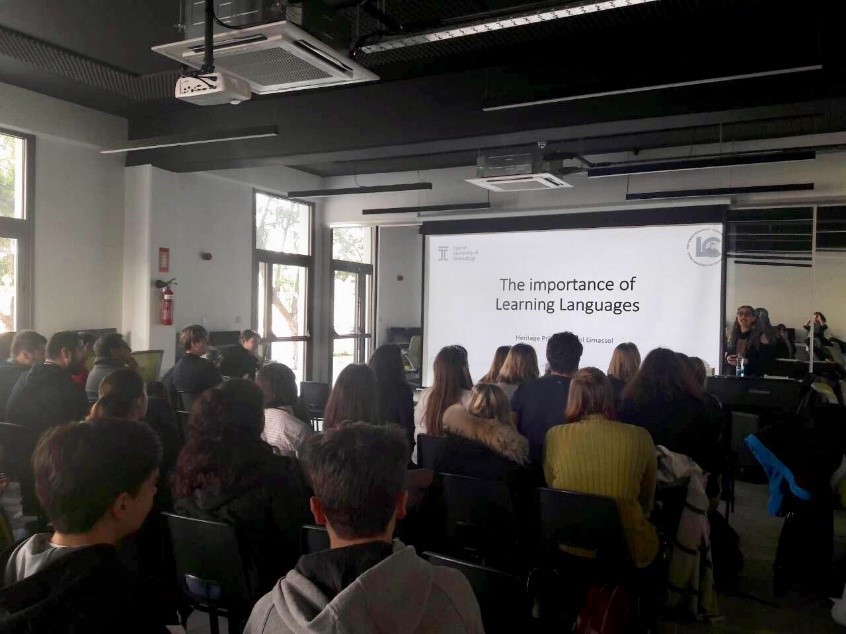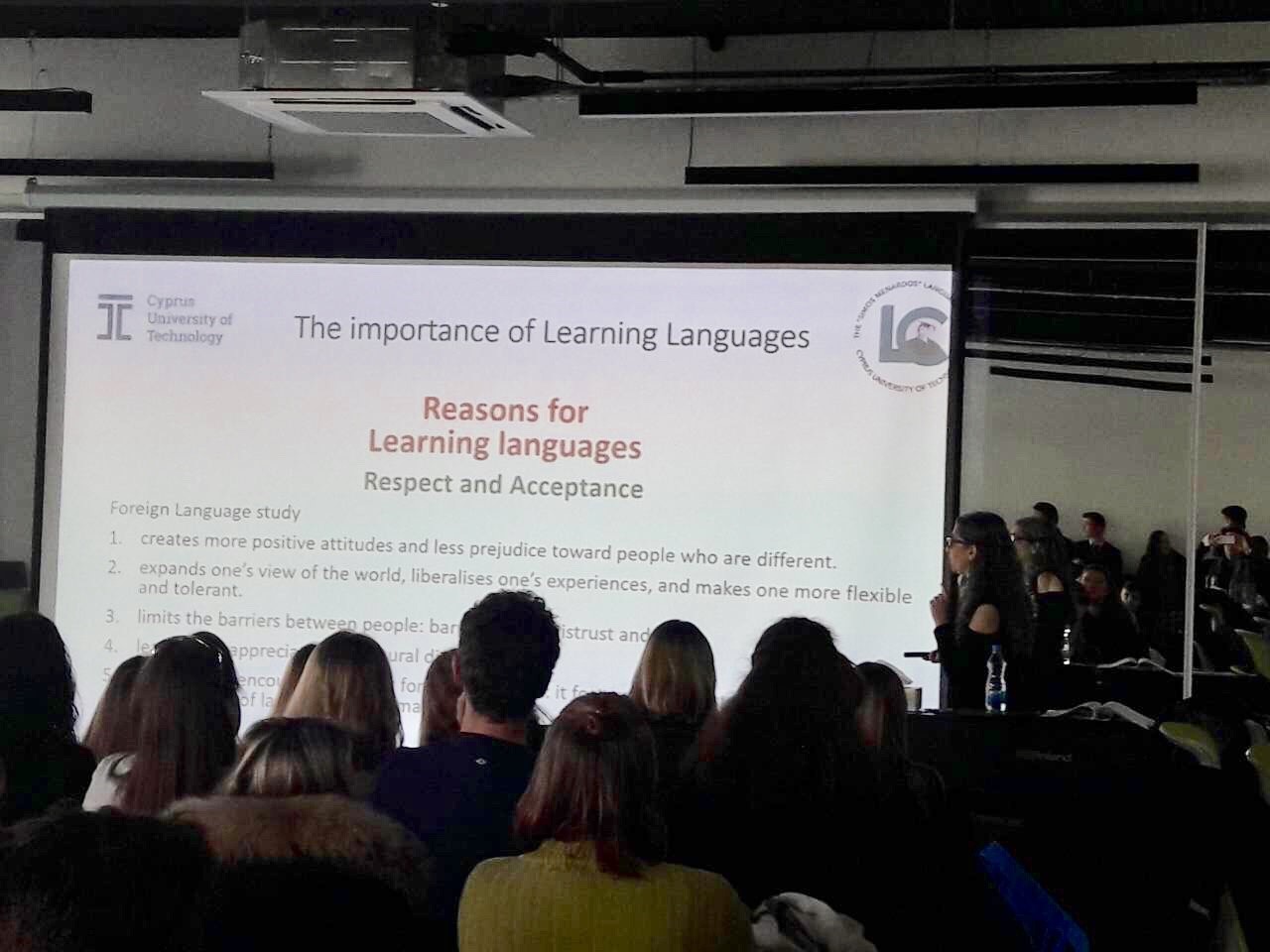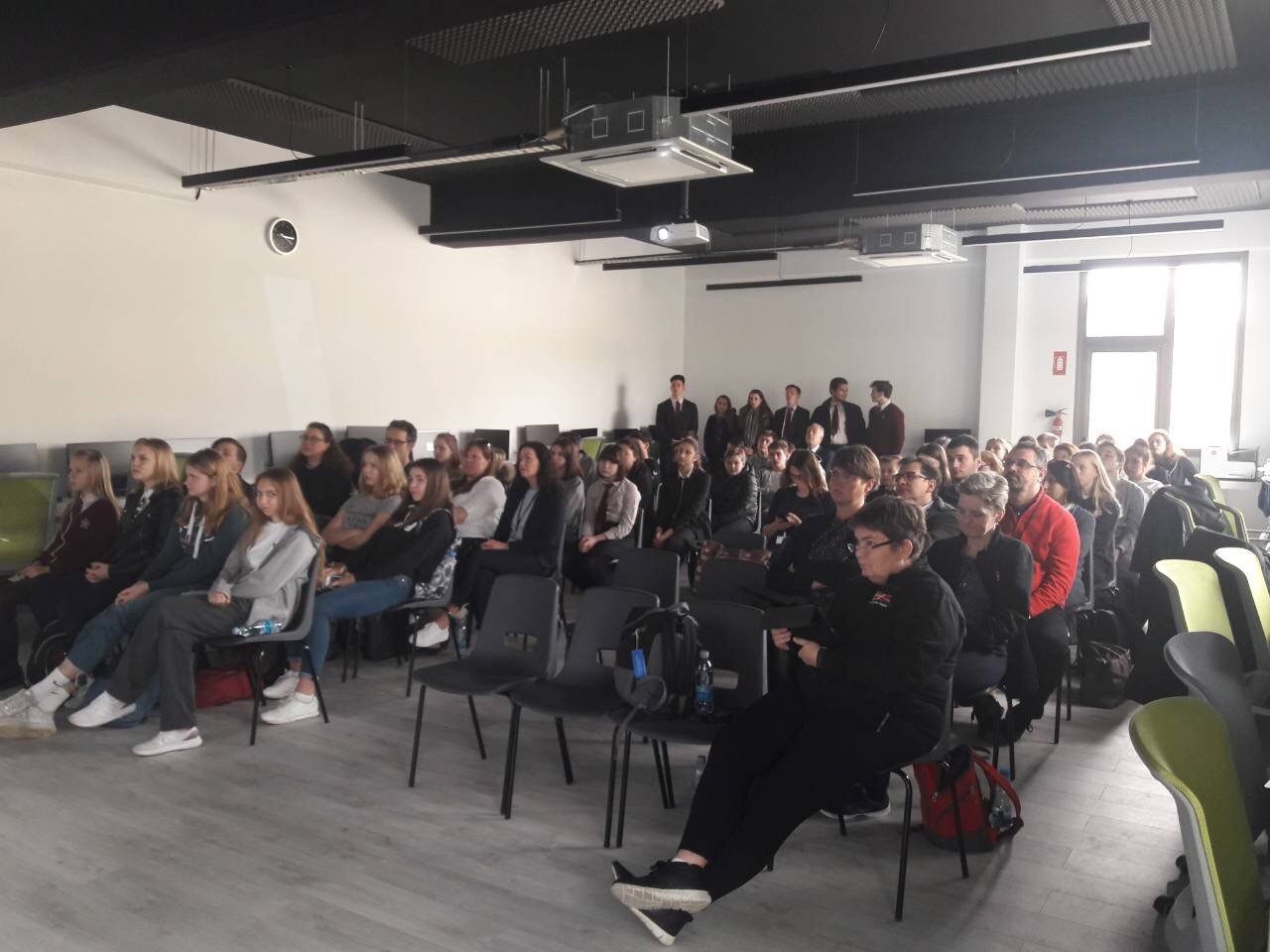On the 24th of January 2019, Dr Salomi Papadima-Sophocleous was invited to visit the Heritage Private School Limassol and give the students and teachers a lecture on the importance of language learning.
The lecture was part of the 2-day activity of a Language Erasmus+ Project. During these two days, the school hosted their partners from Norway, Denmark, Spain and Croatia. The aim of the project, called “Travel'n'share” is for each partner country to visit each other and participate in lesson observations, lectures and workshops and make comparisons on the different teaching methodologies used in teaching languages in different countries.
Dr Papadima-Sophocleous talked about how to attain personal happiness and today’s success by learning languages. She discussed whether people should learn or not learn a language. She explored the benefits of multilingualism/plurilingualism and multiculturalism/interculturalism in peoples’ lives and professional endeavours and gave examples from her life and career and from other peoples’ lives. She challenged the audience by saying that learning a language is not more difficult than learning anything else in life. Any learning needs time, effort, motivation and enthusiasm. She stressed the importance of a mother tongue as the basis for good communication, self-awareness, self- appreciation and self-respect and the learning of further languages. She explored various reasons for learning languages such as the transferable skills they entail (communication skills, brain capacity memory increase, analytical skills improvement, problem solving increase, creativity, etc.);moreover she talked about the benefits in areas such as study and research, the job opportunities language learning opens, the opportunities to travel and meet other people, the creation of positive attitudes and less prejudice towards people who are different, the development of tolerance, appreciation of cultural diversity and the respect for other people, and the enhancement of self-respect and pride. In conclusion she referred to what a Romanian grandmother once said to her grandchildren:
“The more languages you learn
The more lives you live.”
The audience showed great interest in the lecture and actively shared their own thoughts and experiences on the issues presented.
Ερευνητικό έργο CONCORDIA για την κυβερνοασφάλεια στην Ευρώπη
On the 24th of January 2019, Dr Salomi Papadima-Sophocleous was invited to visit the Heritage Private School Limassol and give the students and teachers a lecture on the importance of language learning.
The lecture was part of the 2-day activity of a Language Erasmus+ Project. During these two days, the school hosted their partners from Norway, Denmark, Spain and Croatia. The aim of the project, called “Travel'n'share” is for each partner country to visit each other and participate in lesson observations, lectures and workshops and make comparisons on the different teaching methodologies used in teaching languages in different countries.
Dr Papadima-Sophocleous talked about how to attain personal happiness and today’s success by learning languages. She discussed whether people should learn or not learn a language. She explored the benefits of multilingualism/plurilingualism and multiculturalism/interculturalism in peoples’ lives and professional endeavours and gave examples from her life and career and from other peoples’ lives. She challenged the audience by saying that learning a language is not more difficult than learning anything else in life. Any learning needs time, effort, motivation and enthusiasm. She stressed the importance of a mother tongue as the basis for good communication, self-awareness, self- appreciation and self-respect and the learning of further languages. She explored various reasons for learning languages such as the transferable skills they entail (communication skills, brain capacity memory increase, analytical skills improvement, problem solving increase, creativity, etc.);moreover she talked about the benefits in areas such as study and research, the job opportunities language learning opens, the opportunities to travel and meet other people, the creation of positive attitudes and less prejudice towards people who are different, the development of tolerance, appreciation of cultural diversity and the respect for other people, and the enhancement of self-respect and pride. In conclusion she referred to what a Romanian grandmother once said to her grandchildren:
“The more languages you learn
The more lives you live.”
The audience showed great interest in the lecture and actively shared their own thoughts and experiences on the issues presented.




